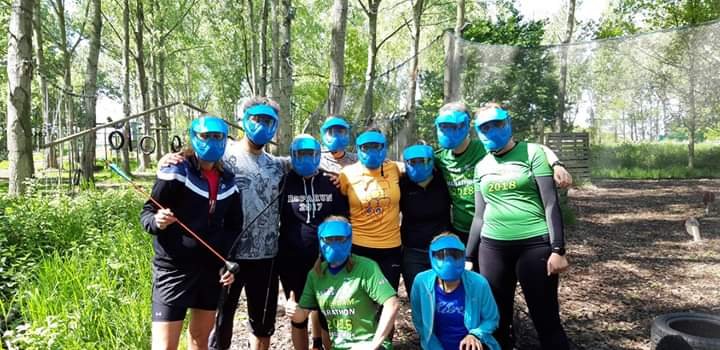
Why running and the running family are a good remedy for depression.
When I walk long distances, I usually have an audiobook on. Music quickly tempts me to run too fast, but stories make me calm. Last week I listened to the book Running is My Therapy from Scott Douglas. In that book Douglas describes how walking keeps him mentally healthy and how he actually applies the usual forms of therapy for depression such as ACT (acceptance and commit therapy) automatically.
The story of Douglas is very familiar to me. Just like him, I also suffer from chronic depression, which in daily life mainly means that I have to do some maintenance in order not to end up in dark periods. Drugs can help – and Douglas also rightly says that running should not be seen as an end-all cure – but in practice running (for me) works much better. By the way, it is also the reason that I once started running, after a ‘ sports career ’ which can mainly be characterized by a total lack of sports skills. Instead of jumping over the horse, I jumped into it due to bad timing… And still today the physio laughs at my motoric derangement.
Why walking works
In general, when running and feeling better, people think directly of blissful substances (endorphins) that are released and the runner’s high. Although that probably helps a little, its contribution is far too small to explain the positive effects of running. I even dare to doubt whether runner’s high exists; I prefer to talk about the flow you can achieve, especially on long distance running. But for the details you better read the book… audio with complex investigations and numbers does not always stick after running.
More interesting are the other reasons why walking is so good. For example, being able to finish a run or achieve a (realistic) sports goal gives you a good feeling and more confidence in your own abilities.
Walking also helps you to put things into perspective. When you run a marathon, thoughts come up all the time that you can't do it, that you are in pain, that you are weak. But as a runner you learn to accept these thoughts, to look at them from a distance, and to focus on what is important in the here and now: walking. Anyone who has ever been to a psychologist will recognize it: this is ACT therapy in a nutshell. Without applying it, you can forget about walking, and that makes walking a good exercise for life.
Another good point is that walking takes you out of your isolation. Where else do you meet and talk to people who were yet to be born when I first tied my running shoes, the author wonders. These friendships and the ease of conversation while walking also function as a kind of therapy.
Out of your comfort zone
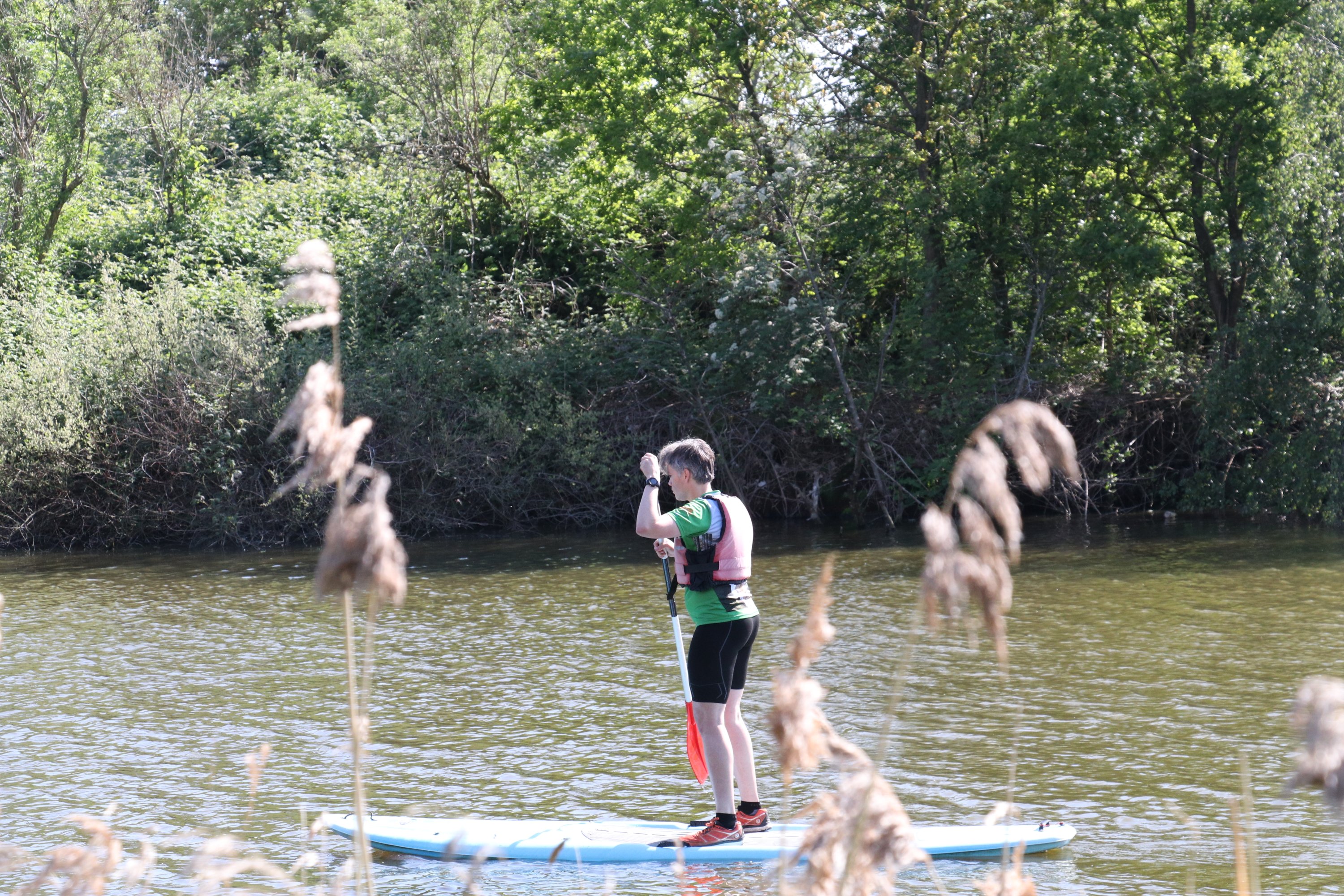 Douglas has observed the latter well. How many of the people I saw at last Saturday's RMD lustrum party would I have met in normal life? All ages, backgrounds and reasons to walk were represented.
Douglas has observed the latter well. How many of the people I saw at last Saturday's RMD lustrum party would I have met in normal life? All ages, backgrounds and reasons to walk were represented.
But apart from people: normally I'd rather sit under a stone when there's a party with sports activities and competitions than take part in them. But with running buddies I strangely enough dare to do it.
And that's how walking makes me push the boundaries. I had chosen reasonably safe beforehand: sup (stand up paddle board) and canoeing, with arrow battle as an extra option, which I could not quite place and actually seemed a bit too aggressive to me. And I won't lie: when the mail came with the program and I got that arrow battle and sup – high wet-cold suit – got assigned, the doubts struck. And I would almost crawl back under that rock anyway. Until Joost van der Linden suddenly came up with an offer for a lift – a stick behind the door – I hesitated to go.
Headshot
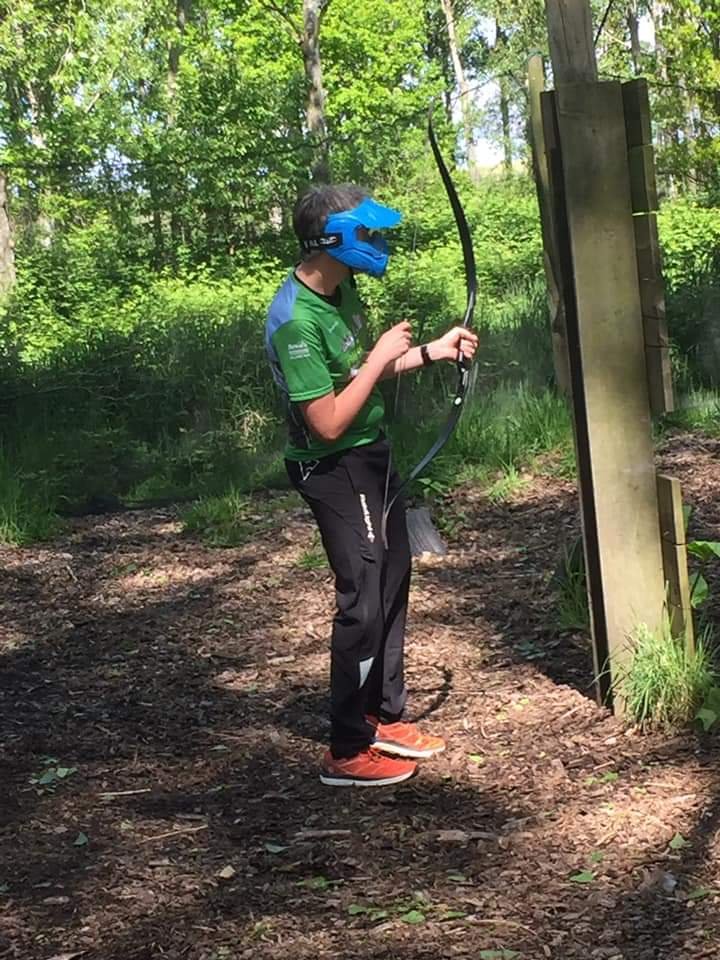 The fear of the arrow battle quickly turned out to be unjustified. It reminded me a bit of good old Unreal, quickly eliminating as many enemies as possible with a bow and arrow with a large rubber head on top. Sorry Rose, but Headshot! You are the winner! went through my head when I accidentally shot you a second time… At least it gave a very good adrenaline rush. Even after I was hit a couple of times in the end.
The fear of the arrow battle quickly turned out to be unjustified. It reminded me a bit of good old Unreal, quickly eliminating as many enemies as possible with a bow and arrow with a large rubber head on top. Sorry Rose, but Headshot! You are the winner! went through my head when I accidentally shot you a second time… At least it gave a very good adrenaline rush. Even after I was hit a couple of times in the end.
Suppen I had done once before on Lanzarote. I was lying there more off the shelf than I was standing on it. Luckily the water at Outdoor Valley undulates a lot less. And I managed to get up without falling. But unfortunately I did not feel very strong here. My unstable foot hurt and the trembling to stay stable made me feel like I had a hypo (but I didn't have one, I measured beforehand to be sure). To my shame I continued the rest of the trip on my knees. That too is a kind of victory: doing what's good for yourself instead of wanting to keep up appearances.
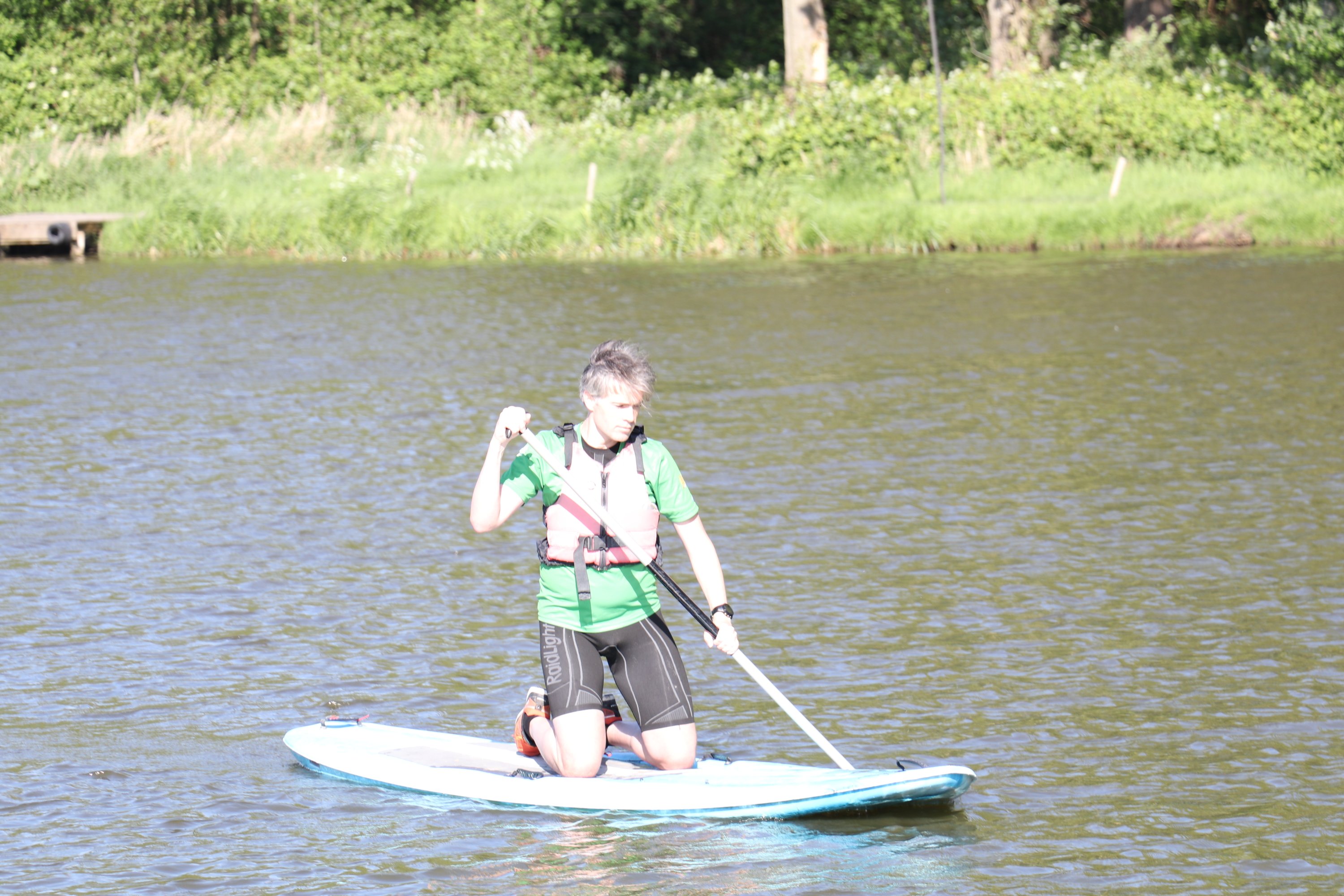
Package leaflet
I couldn't live without walking now. And that's something that's worrisome, and Douglas warns against it. The period after my pneumonia last year – as a result of which I missed the energy to walk – is fresh in my memory. Therefore, the case remains that we do not purely focus on walking as a medicine, but as part of a balanced life. That's what I'm trying to do this year by painting and meditating.
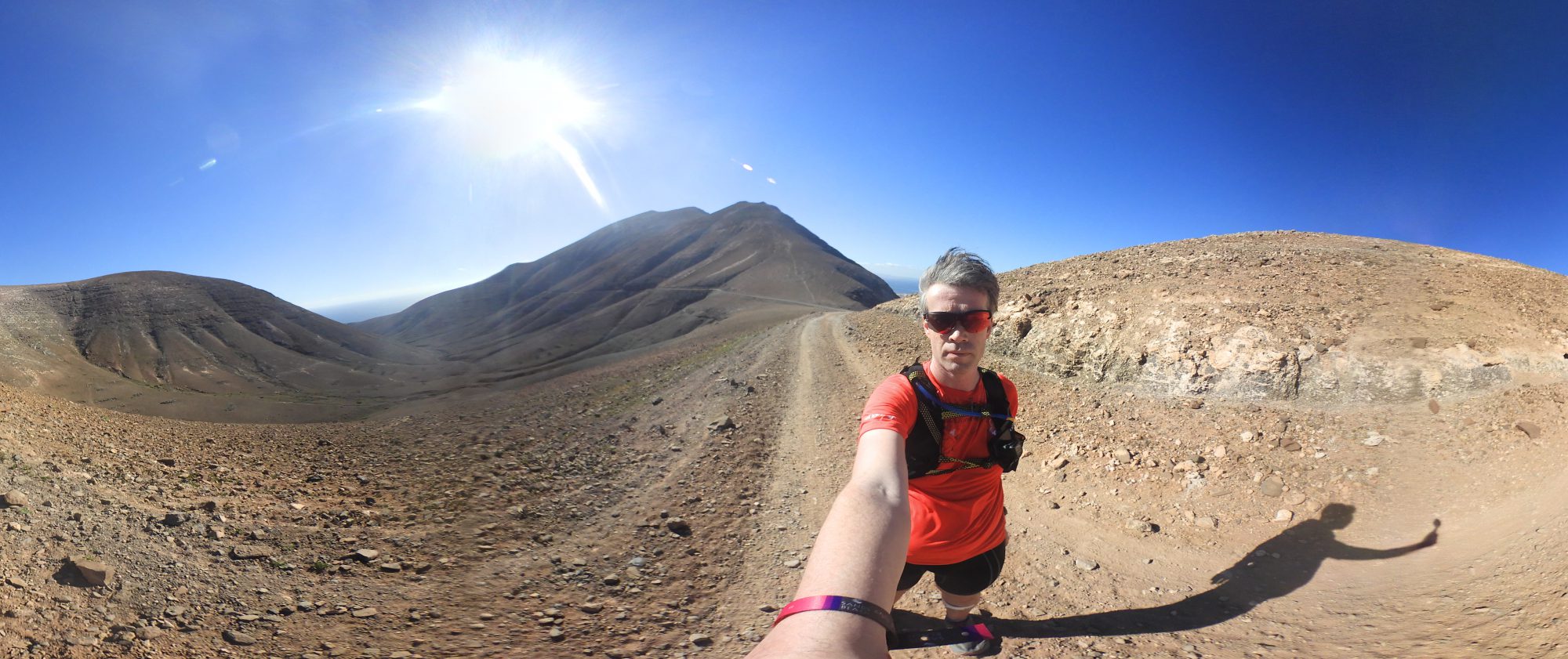
Nice story.
I wouldn't be able to run without it either.
One more small addition about the pleasant mental side effects of running.
I think you have to constantly orient yourself in space while running. You have to stay upright, estimate your speed, find a place to put your foot down and see if there are any obstacles in front of you.
All this mental effort absorbs so much attention that there is less room in your head for worldly worries. You get into a rush of concentration or mindfulness, comparable to musicians who play a difficult piece.
At trailrunning this effect is stronger than on a “safe” piece of asphalt, I noticed.
According to research, the trails do indeed do a better job of emptying the head. If it seems to be effortless to place your feet and you can let go of all thoughts, then I think you are in the flow. Then everything is in balance.